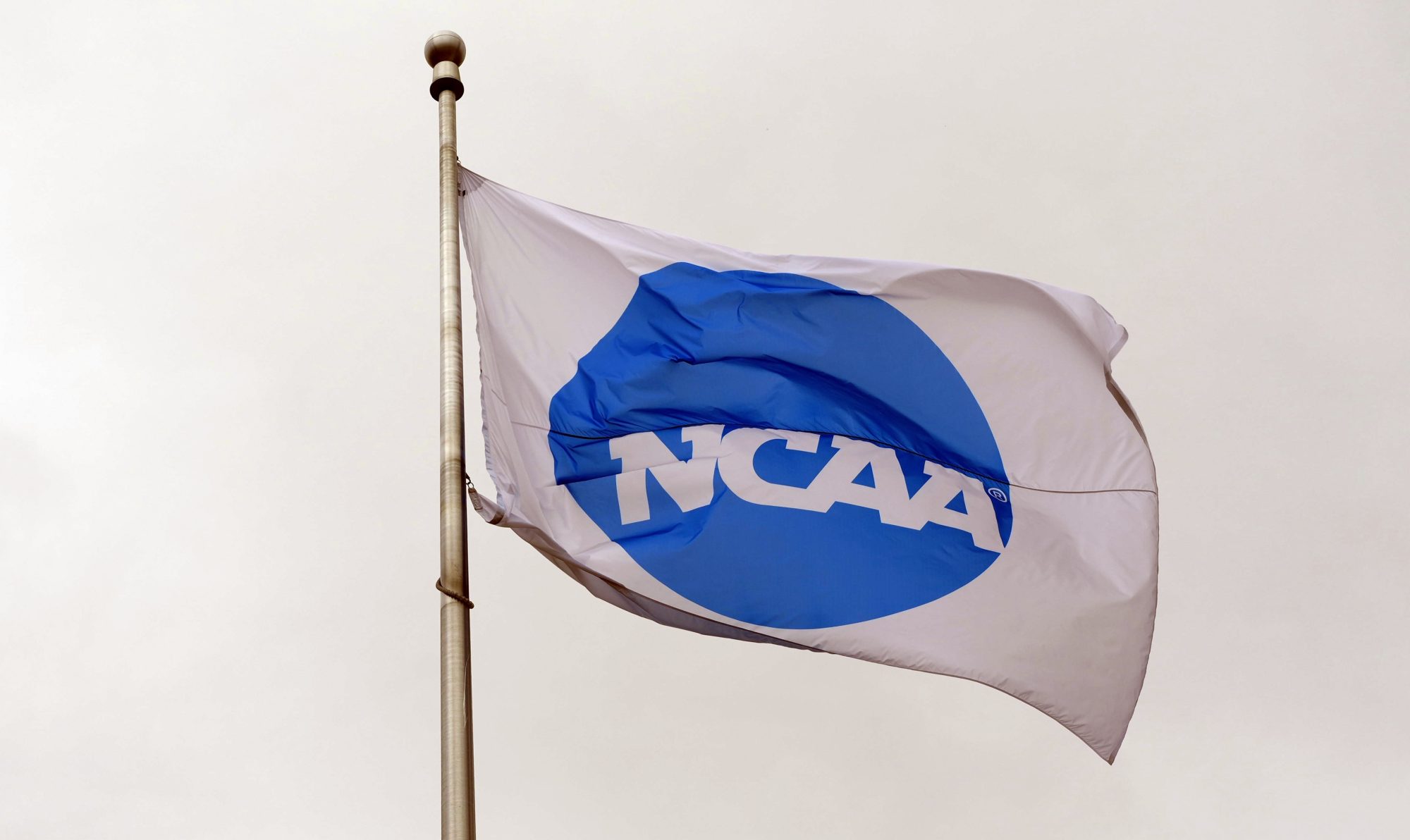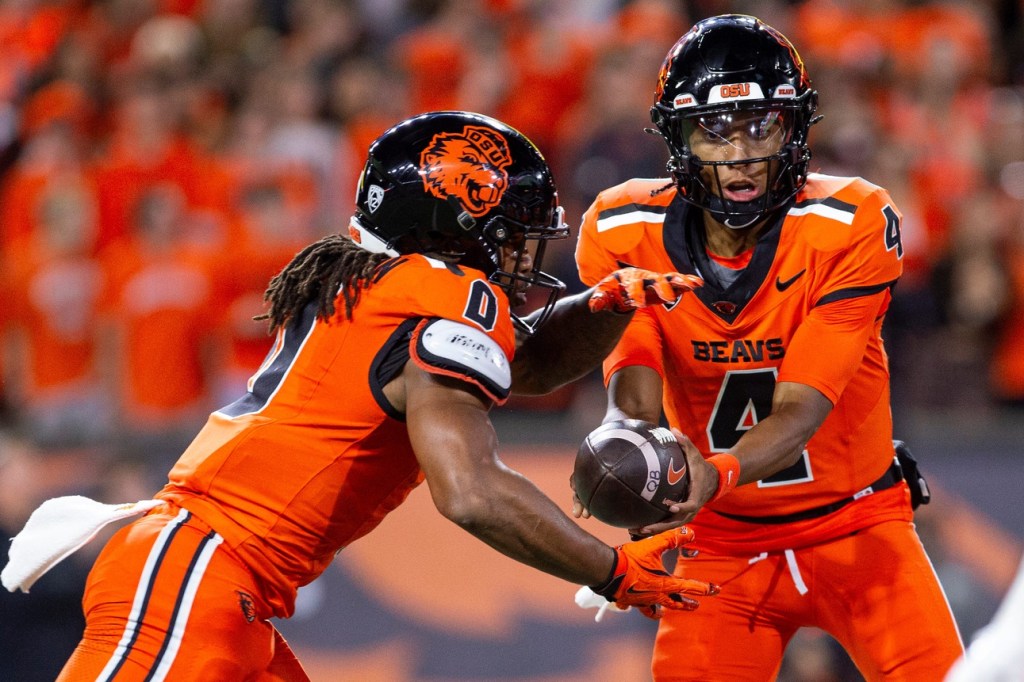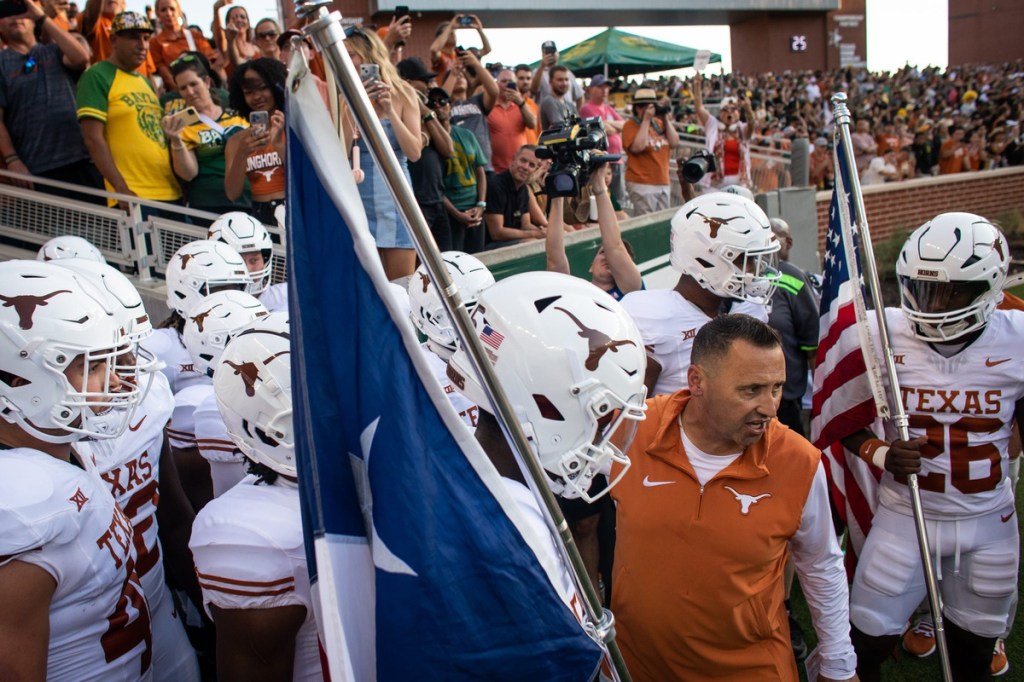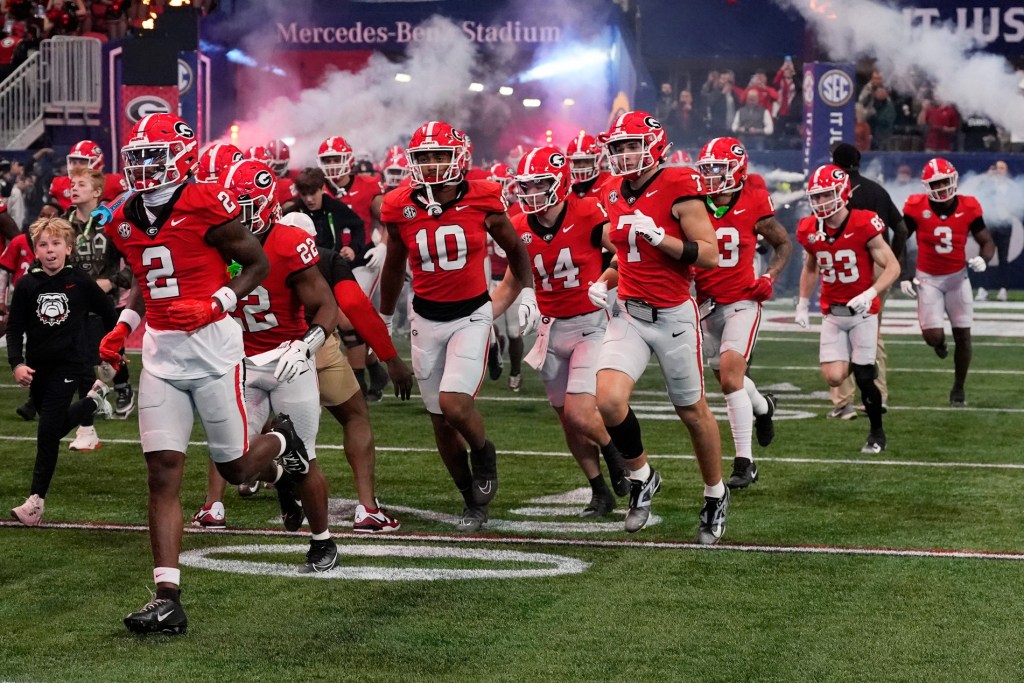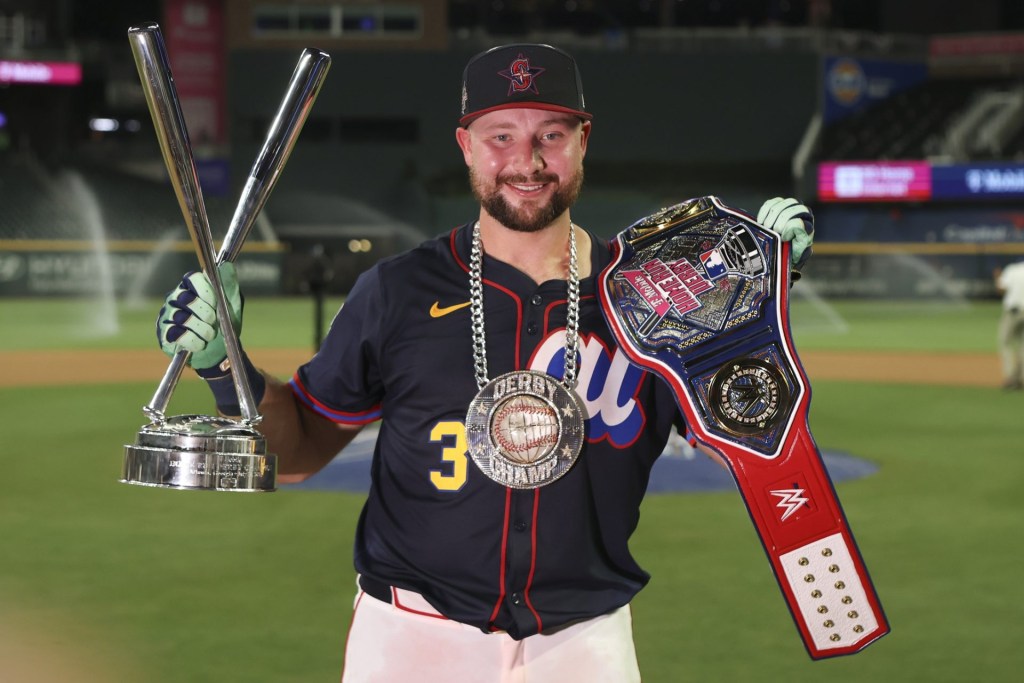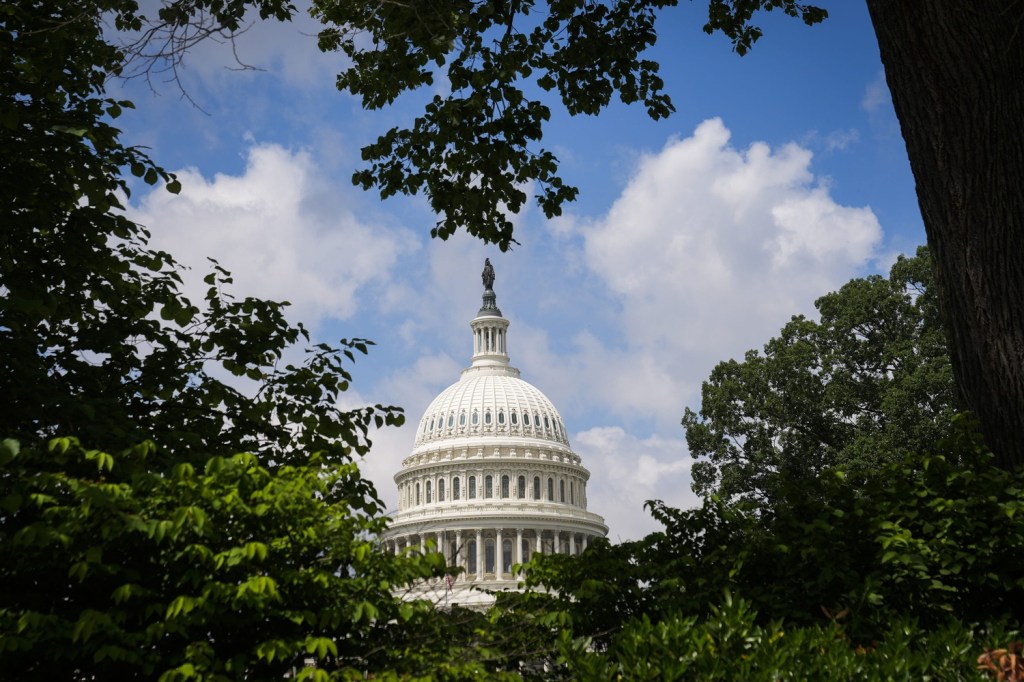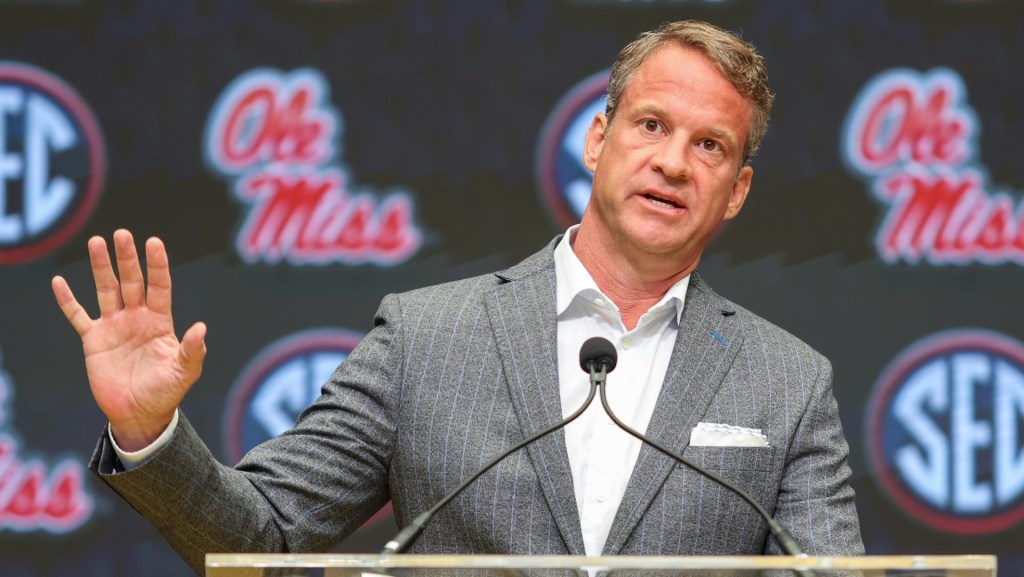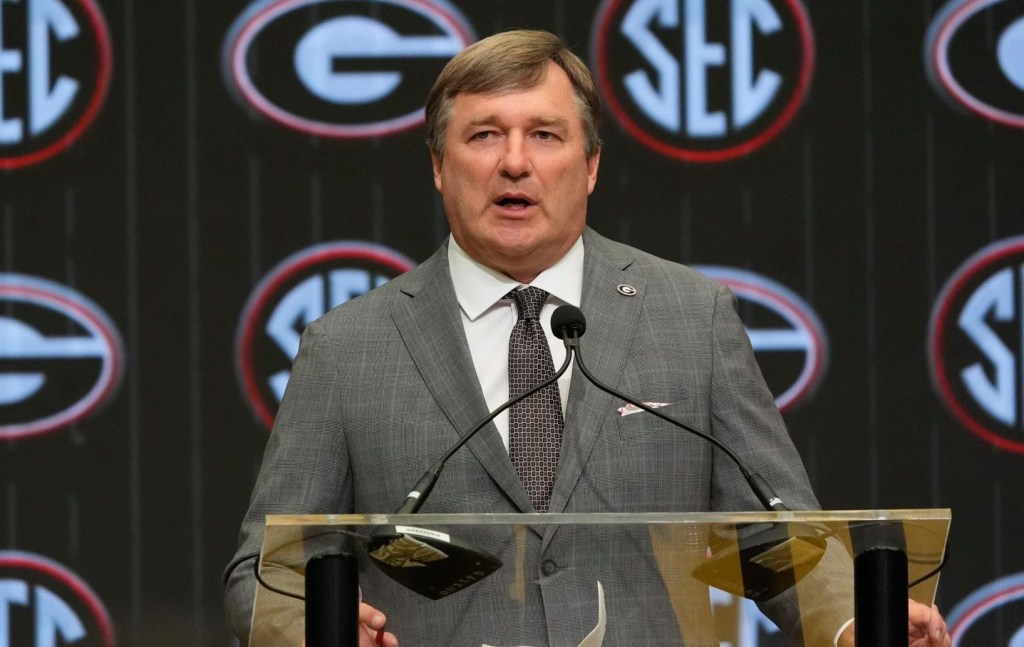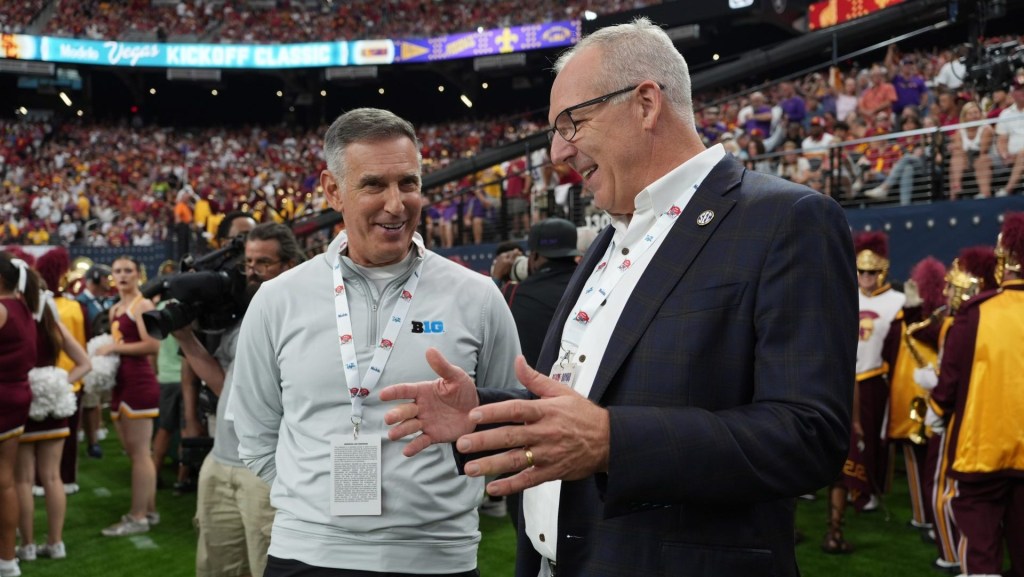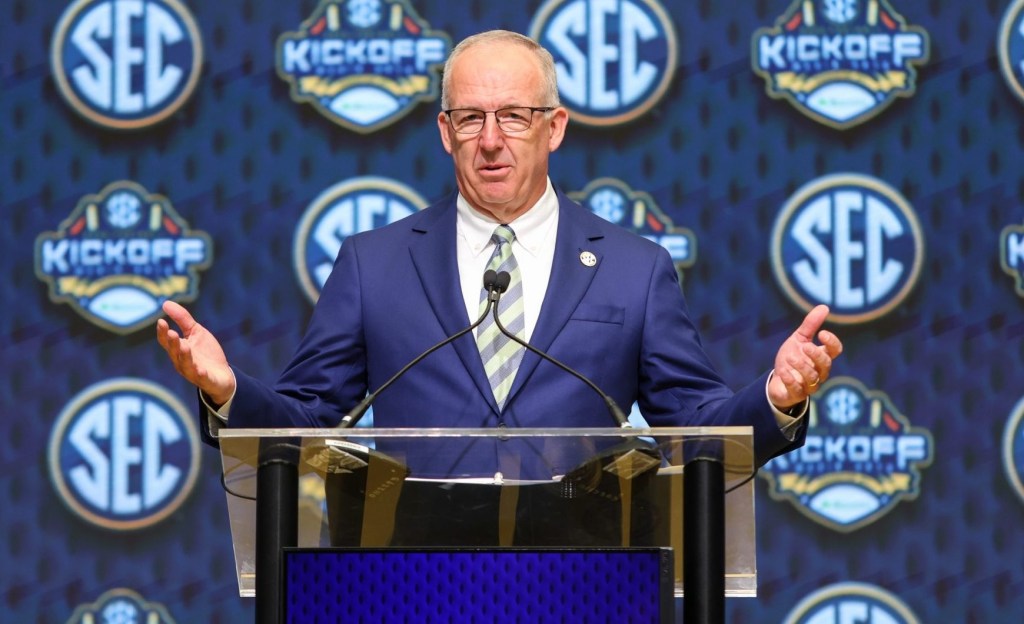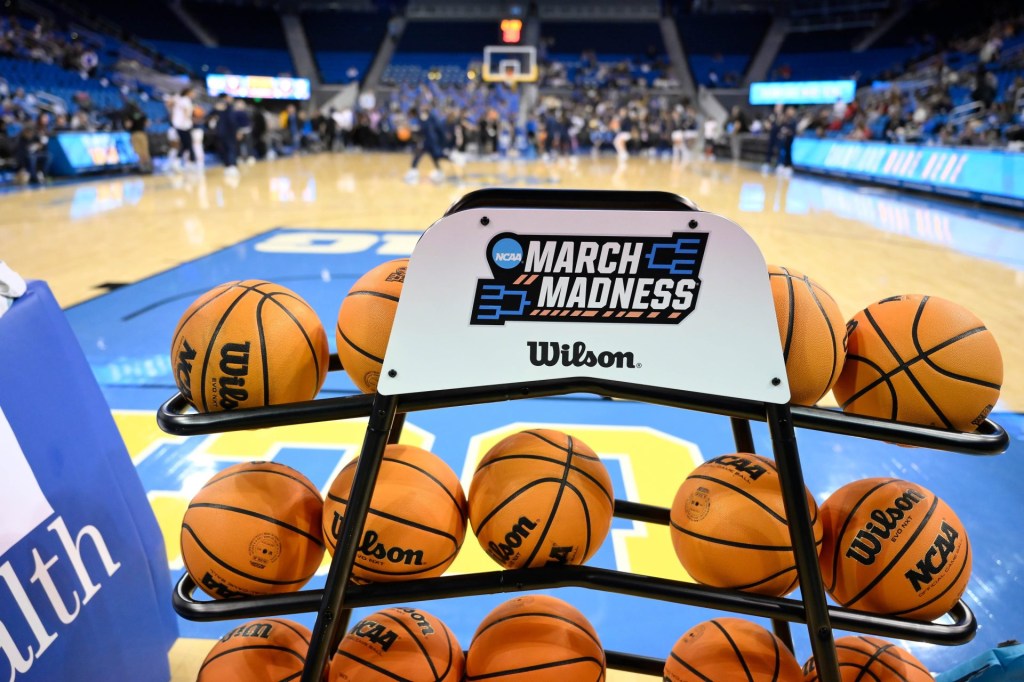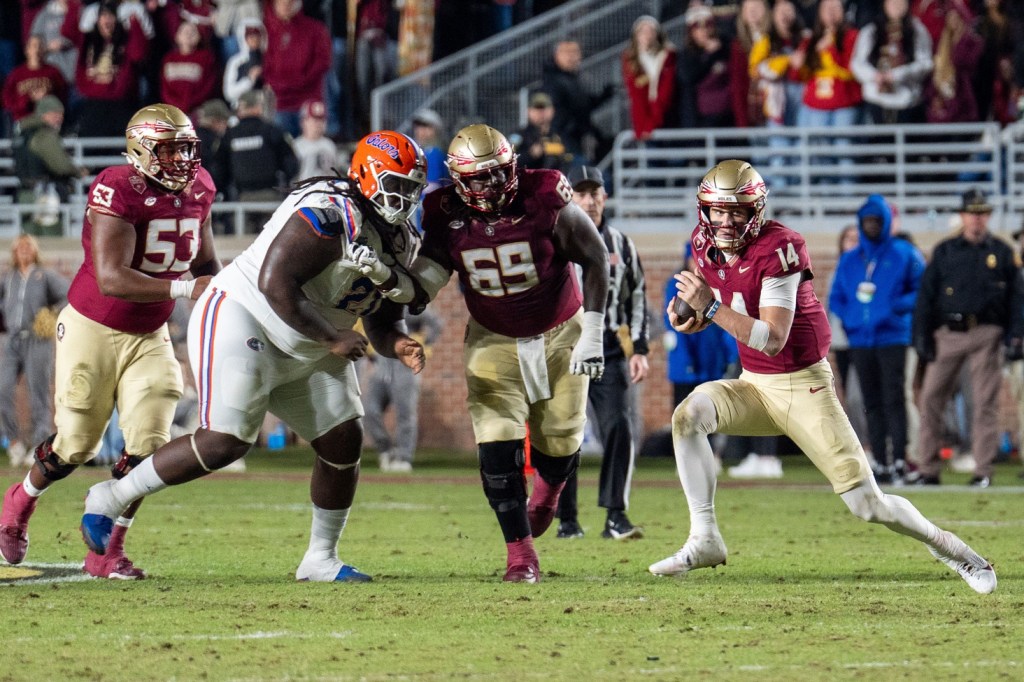The NCAA is one step closer to allowing schools to pay their players.
On Friday, plaintiff lawyers in the House v. NCAA case filed a historic formal settlement proposal to the Northern District of California federal court—one that if codified would, among other things, pave the way for power conference schools to share television revenue with players for the first time in NCAA history starting in 2025–2026.
The parties will meet Sept. 5 for the next step in the settlement process, which would be a preliminary certification by the judge.
The formal proposal comes two months after the NCAA, conferences, and plaintiff lawyers announced they intended to settle.
The case, first filed in 2020, argued the NCAA and power conference schools owe athletes damages for losing out on name, image, and likeness opportunities before the NCAA changed its rules in July 2021. It also argues the definition of NIL should be expanded to include broadcast television revenue, which would facilitate revenue sharing between athletic departments and athletes. Two other athlete compensation cases, Carter v. NCAA and Hubbard v. NCAA, were consolidated into the case.
The settlement proposal, which includes multiple documents, includes much of the same proposals informally suggested in May.
One component: the $2.6 billion damage distribution that the NCAA and power conference schools will owe to multiple classes of athletes who were deprived of NIL opportunities from 2016 to 2021. The court documents explain how each damage class of athletes, including D-I athletes from all sports to varying degrees, will receive these payments in annual installments over ten years, starting in 2025. The damage numbers vary widely, and depend on what sport the athlete played, what other NIL deals they’ve received, and when they played—among other factors. (Named plaintiffs in the House case will receive $125,000 each for “service awards,” and named plaintiffs in the Carter case will receive $10,000.) Some estimates provided by the court documents:
- Thousands of football and men’s basketball players will receive an average of $91,000 for NIL-related damages, up to $4,000 for video game NIL damages, and $40,000 other compensation damages. Those who played before and after the NCAA changed its NIL rules in July 2021 could earn up to $800,000.
- Women’s basketball players could earn “lost opportunity NIL” damages up to $300,000, and averages of $23,000 and $14,000 for other damages.
- Athletes outside football and basketball could earn $1.8 million collectively in damages related to “lost opportunity NIL,” or not being able to earn NIL money dating back to 2016.
The settlement also outlines a 10-year agreement for the future. Schools will be allowed to share 22% of the average annual power conference revenue with their athletes every year, an amount that roughly adds up to $22 million annually in 2025–2026, and that could grow to $32.9 million by the end of the 10-year agreement, according to court documents. Any and all D-I schools can participate in revenue sharing if they have the funds. However, because of other legal statutes like Title IX, the law governing gender equity in education, the agreement will not mandate how that money will be divided.
There will also be no more scholarship limits; schools can offer scholarships up to roster limits, which have been modified in many sports. (Football, for example, will now have 105.)
The settlement also allows the NCAA to implement some NIL restrictions without fear of participating parties suing them on antitrust grounds in the future. Among them:
- Athletes will be required to report any NIL deals upward of $600 to their schools.
- Power conference schools will have to report the NIL agreements they enter into with athletes. Schools not involved in the settlement, but who choose to enter in revenue-sharing, will also have to follow this reporting rule.
- Boosters and collectives will have some regulations, and be required to offer deals that are “fair market value.”
The settlement also creates an enforcement mechanism to settle issues relating to the terms of the settlement. Plaintiffs and defendants will agree on “neutral” arbitrators, who will serve terms of three years.
Finally, plaintiff attorneys’ law firms will also cash in, earning in the ballpark of $50 million combined, according to court documents.
The settlement also allows the NCAA to implement some NIL restrictions without fear of participating parties suing them on antitrust grounds in the future. “NCAA compensation and benefit rules as revised by the settlement will be permitted, as will certain new rules limiting boosters to making fair market value payments for NIL, addressing the number of seasons/length of time college athletes are eligible to receive benefits, the progress required toward a degree for a college athletes to be eligible to receive benefits under the Injunctive Relief Settlement, rules preventing circumvention of the agreement, as well as other rules detailed in the Injunctive Relief Settlement,” the main settlement document reads.
At this point, it’s unclear how much opposition the settlement will face. So far, no athletes have opted out of the current settlement, according to a document filed Friday. Athletes will, however, have the opportunity to object to the settlement every season, when they sign their “normal” paperwork to start playing on their NCAA team.
One school, Houston Christian, filed a request for a formal objection to the settlement, as many non-power conference schools are upset that some of the damages payments will come from their NCAA distributions. But the request for that objection was denied by Judge Wilken earlier this week.
Even if approved, however, the settlement would not solve all of the NCAA’s legal woes. One federal court case called Johnson v. NCAA, as well as two cases through the National Labor Relations Board, are debating whether athletes should be considered university employees. The House settlement does not answer this question, and would not halt any of the three cases. If athletes are declared employees with the right to collectively bargain, the settlement agreement could be renegotiated, according to court documents.
Next, negotiations will now enter a multi-step approval process, which will include a meeting of parties on Sept 5., a period where plaintiffs can object to the settlement and, ultimately, a sign-off from judge Claudia Wilken (the same judge who has presided over other major college athlete compensation cases O’Bannon v. NCAA and Alston v. NCAA). If the schedule proposed in the settlement documents is approved, the process could extend well beyond this year, into at least February 2025.
The NCAA has said it also hopes to use the settlement as a “blueprint” for a law from Congress, which would codify settlement terms as well as protecting the NCAA from having to make any further changes. As part of the settlement, plaintiff attorneys agreed to advocate for Congress to codify the settlement, but they will remain “neutral” on the question of whether athletes should be classified as employees. The governing body and power conference commissioners reiterated this position in a statement published Friday: “The need for federal legislation to provide solutions remains,” they said. “If Congress does not act, the progress reached through the settlement could be significantly mitigated by state laws and continued litigation.”
This breaking news story has been updated.
